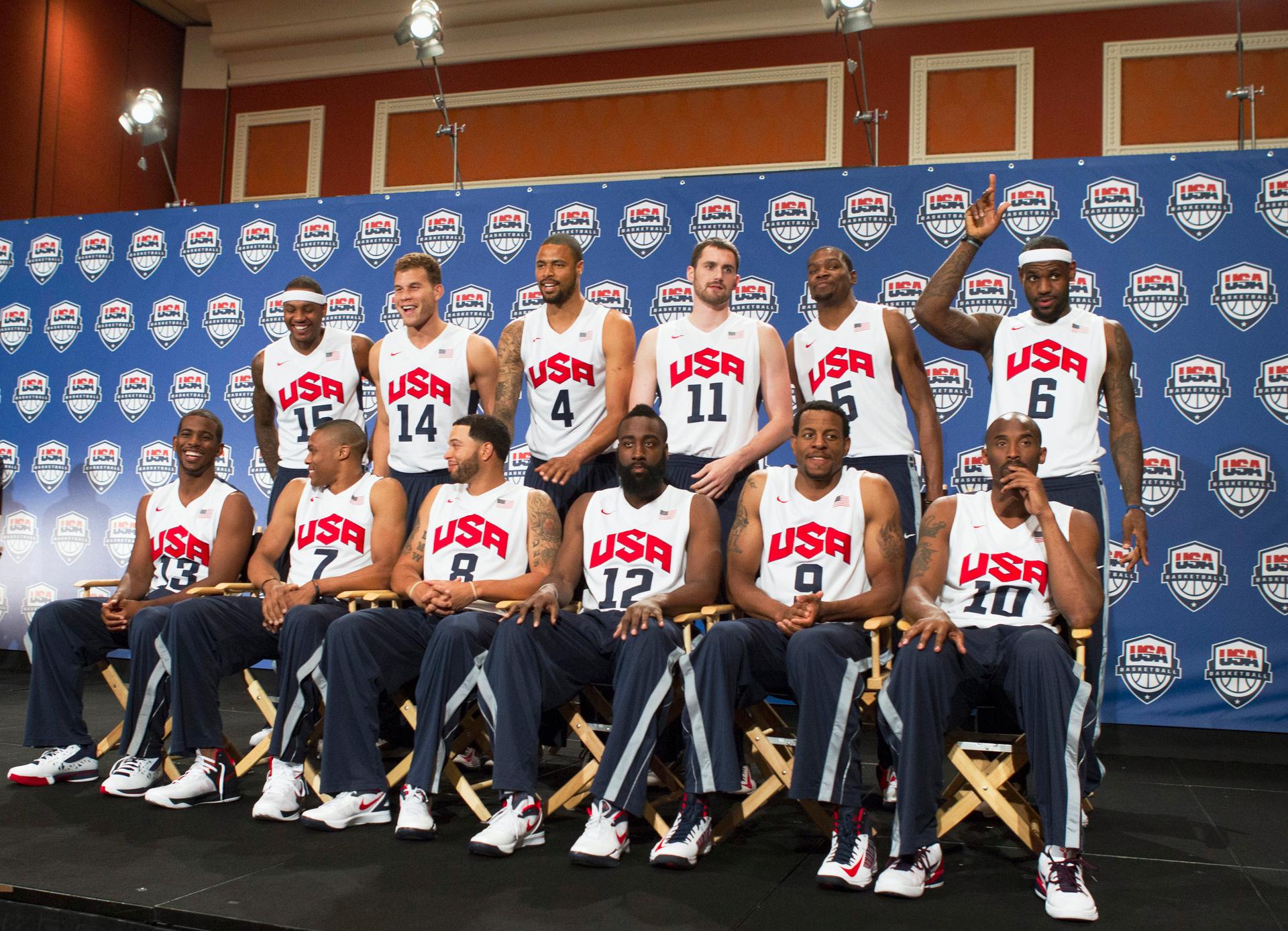London Olympics may be last hurrah for U.S. basketball Dream Team
The twelve players selected for the 2012 U.S. Olympic men’s basketball team pose during a news conference at the Wynn Las Vegas Resort on July 7, 2012. (Photo by Steve Marcus/Reuters.)
When the Summer Olympics kick off in two weeks in London, the U.S.A. Basketball Dream Team will take to the court for the sixth time.
It may also be the last time. NBA Commissioner David Stern has been hinting this sixth edition of the Olympic dream team may be its last. He said as much in the midst of the most recent NBA Championship.
All indications are that Stern and the NBA will push to impose an age limit of 23 on future U.S. Olympic teams, which would force U.S.A. Basketball to craft a team from college athletes and very early-career pro players.
The originial “Dream Team” roster made of NBA professional athletes debuted in 1992 starring players Michael Jordan, Magic Johnson and Larry Bird. This year’s team includes Kobe Bryant and LeBron James. All are older than 23.
Jack McCallum, a writer for Sports Illustrated and author, said Stern thinks the NBA and even the United States has gotten as much as it can from having pro players on the Olympic Court. For example, the 20 years ago, the NBA was televised in just 80 countries, according to the Chicago Tribune. Now it can be found on 215.
Back in 1992, there was just a handful of foreign-born players in the NBA, now there are dozens.
“Monetarily, the Olympics were never a boon for us as a country, as a league,” McCallum said. “David Stern is also fielding a lot of complaints from individual owners of franchises, saying ‘why do I want to send my star assets over there. They play an 82-game season, then they play the playoffs. What do I want to send Dirk Nowitzki to compete for Germany. I’m not getting enough out of it.'”
McCallum said Stern’s got an eye on creating a soccer-style World Cup, where the NBA and its owners could exert more control, reap more profits and perhaps gain new, additional exposure.
“He sees that type of quote, business model, as something that would be better in the long-run for the NBA,” McCallum said.
And McCallum’s not sure the Olympics would really miss the NBA players. For better or worse, the majority of the global Olympic attention is on swimming, gymnastics and track and field, and not really on basketball, he said.
“It’d be interesting to see if the interest could be generated by another type of World Cup tournament,” McCallum said. “I think that’s what Stern thinks also.”
That’s not to say that the Dream Team model hasn’t changed Olympic basketball. Quite the contrary in fact. McCallum said the Dream Team led the rest of the basketball-playing world to do a lot to catch up.
“By the time we got to the 2002 World Championships a decade after the Olympics, the United States sent a team that finished in sixth place,” McCallum said.
As a side benefit, at least for American basketball players, the stronger competition from overseas has led to much stronger international leagues, in Spain, Italy and Israel, for example, where American players who can’t cut it permanently in the NBA can go and play basketball for pay.
